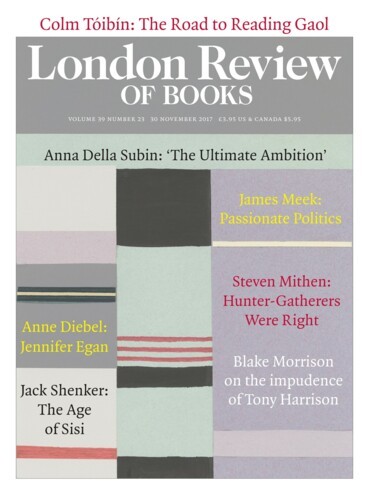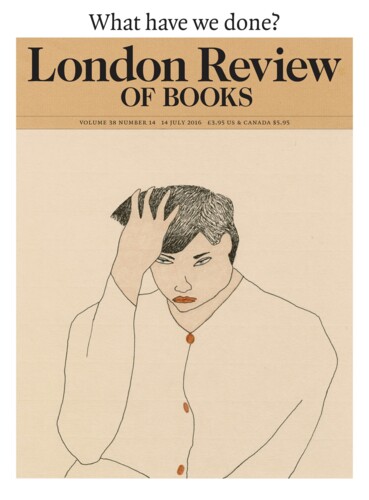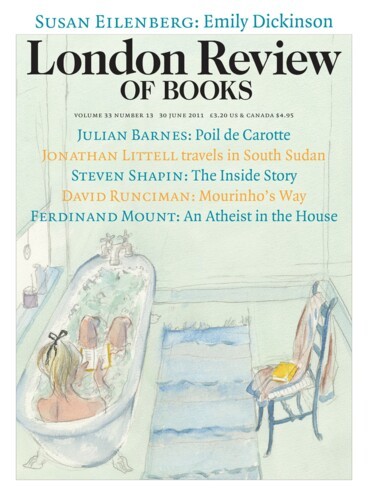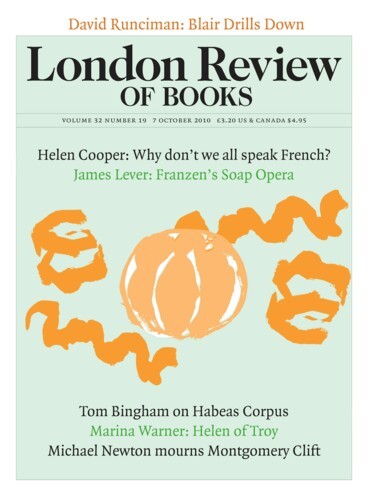The Authentic Snarl: The Impudence of Tony Harrison
Blake Morrison, 30 November 2017
If his English teacher hadn’t been so snootily discouraging, it’s unlikely that Tony Harrison would have gone on to write as much as he has: by my calculation, 13 plays, 11 films and twenty or more poetry collections and pamphlets, not to mention the essays and addresses assembled in Edith Hall’s edition of his selected prose. That teacher, commemorated but unnamed in the poem ‘Them & [uz]’, was so dismayed by Harrison’s ‘barbarian’ recital of Keats’s ‘Ode to a Nightingale’ in a Northern working-class accent that he called a halt after only four words.





